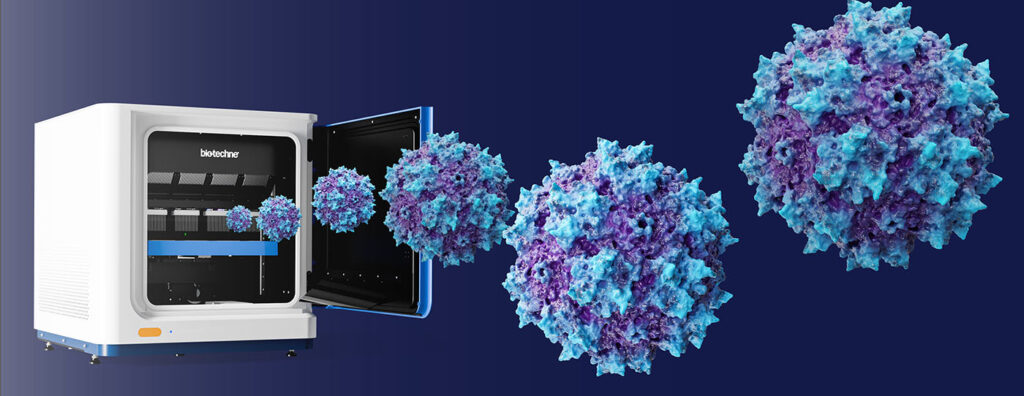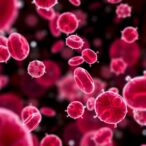Sponsored content brought to you by
As gene therapies continue to advance, the demand for scalable, reproducible, and efficient potency assays is rapidly increasing—especially for adeno-associated virus (AAV) vectors. Accurate quantification of transgene expression and functional protein production is essential not only to meet regulatory expectations but also to ensure consistent therapeutic efficacy.
Traditional methods for AAV potency testing, such as Western blot, ELISA, and cell-based assays, are labor-intensive and often limited in sensitivity and throughput. The Leo™ System, powered by Simple Western™ Technology, addresses these limitations with a fully automated, ultra-sensitive platform that analyzes up to 96 samples in a single three-hour run. Unlike conventional techniques, Leo enables absolute quantification of protein expression without gel electrophoresis, membrane transfer, or manual blotting—dramatically reducing assay time and hands-on effort.
How Leo is Transforming Potency Testing
Leo is designed to overcome the common challenges of potency assays with key features that support both research and quality control environments:
- High throughput: Process up to 96 samples in just three hours, setting a new standard for Western-style protein analysis.
- Universal compatibility: Compatible with all AAV serotypes and target proteins, requiring only a single validated antibody.
- Exceptional sensitivity: Detects low-abundance proteins at the picogram level using only 3 µL of sample.
- Automated and scalable: Reduces manual steps, minimizes variability, and supports larger, more efficient studies.
- Reproducible and quantitative: Includes total protein normalization for consistent and accurate results.
- Rapid turnaround: Speeds up analysis from days to hours, accelerating product development timelines.
Sensitive Enough to Detect Subtle Potency Differences
Potency testing must be sensitive enough to detect small but meaningful differences in transduction efficiency due to stress conditions or lot-to-lot variability—factors that directly impact regulatory compliance and patient safety.

In one study using Leo, AAV8 lots incubated at 37°C for five days showed reduced GFP expression following cell transduction, compared to non-stressed controls (Figure 1A). Parallel line analysis (PLA) revealed a 0.4–0.5-fold reduction in relative potency in stressed samples (Figure 1B, left panel). These results highlight the effect of stress-induced degradation, such as asparagine deamidation, and underscore the need for robust analytical platforms like Leo to monitor product integrity under various conditions.
Reliable Detection of Lot-to-Lot Variability
Manufacturing variability is another critical concern in gene therapy development. Subtle differences between production lots can impact transgene expression, but detecting these differences requires highly sensitive and reproducible assays.
Leo clearly distinguished between two AAV8 lots, revealing that lot 2 was approximately 1.9 times more potent than lot 1 based on total protein–normalized expression (Figure 1B, right panel). The assay showed excellent reproducibility with a coefficient of variation (CV) of 6% or less, demonstrating its reliability. Notably, the low sample requirement (3 µL) means these insights are gained with minimal impact on overall vector yield.
Absolute Quantification Supports Regulatory Expectations
Though many potency assays focus on relative changes, knowing the absolute amount of transgenic protein (e.g., ng/mL or fg/cell) provides more direct evidence of vector efficacy and supports better-defined acceptance criteria and dose-response assessments. Using a standard curve, Leo measured protein concentrations down to 0.08 ng/mL (0.12 fg/cell). Consistent with relative potency data, stressed lots showed reduced protein expression, and lot 2 remained more potent than lot 1 (Figure 1C).
A New Era in Potency Testing
The Leo System offers a powerful, high-throughput solution for AAV potency testing that overcomes the limitations of traditional methods. By combining automation, ultra-low sample requirements, and quantitative precision, Leo enables faster, more reliable decision-making across research, development, and manufacturing workflows.
Whether supporting early-stage screening or final batch-release testing, Leo brings unmatched efficiency and insight to the evolving field of gene therapy.

Meet Leo www.bio-techne.com/Leo.




